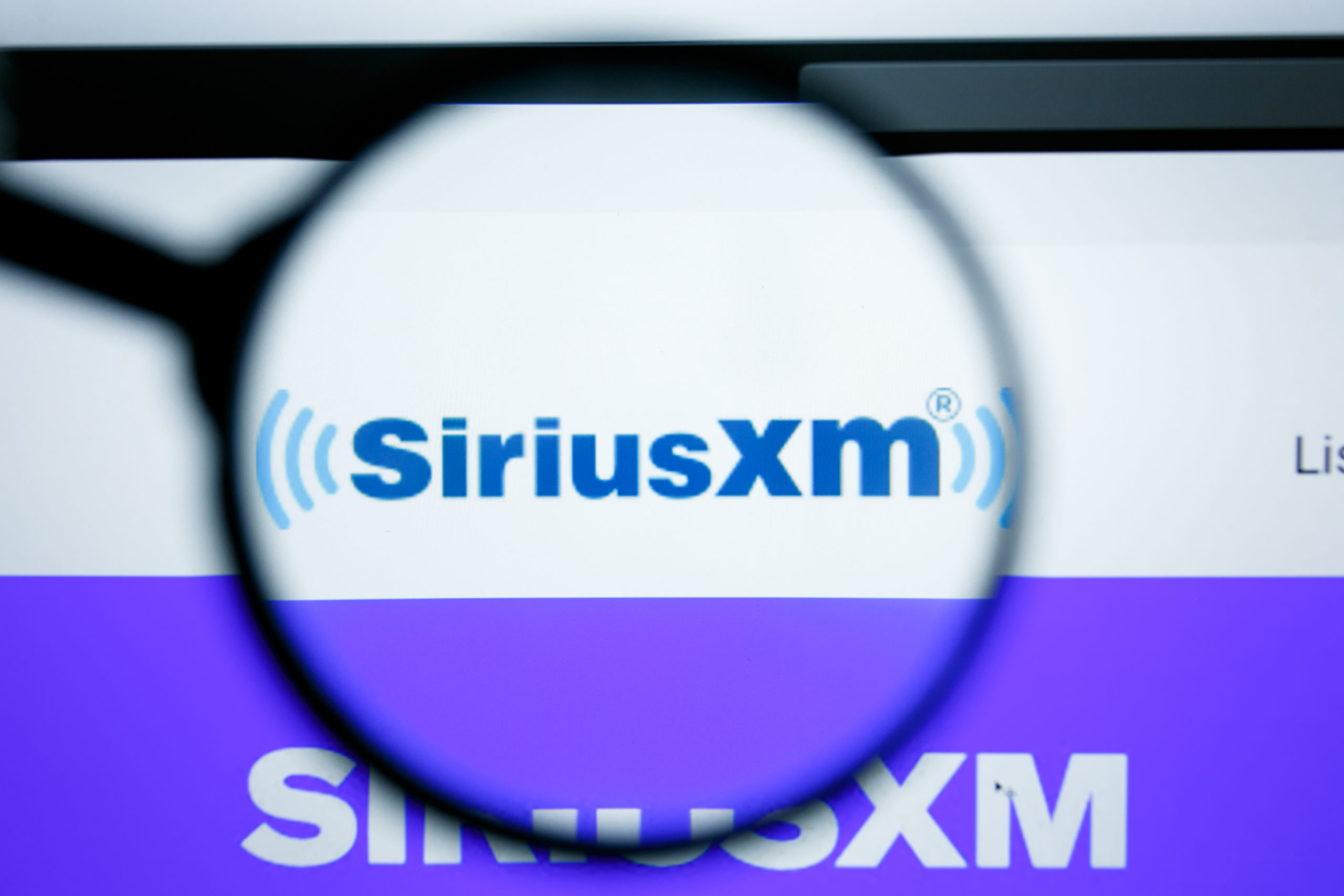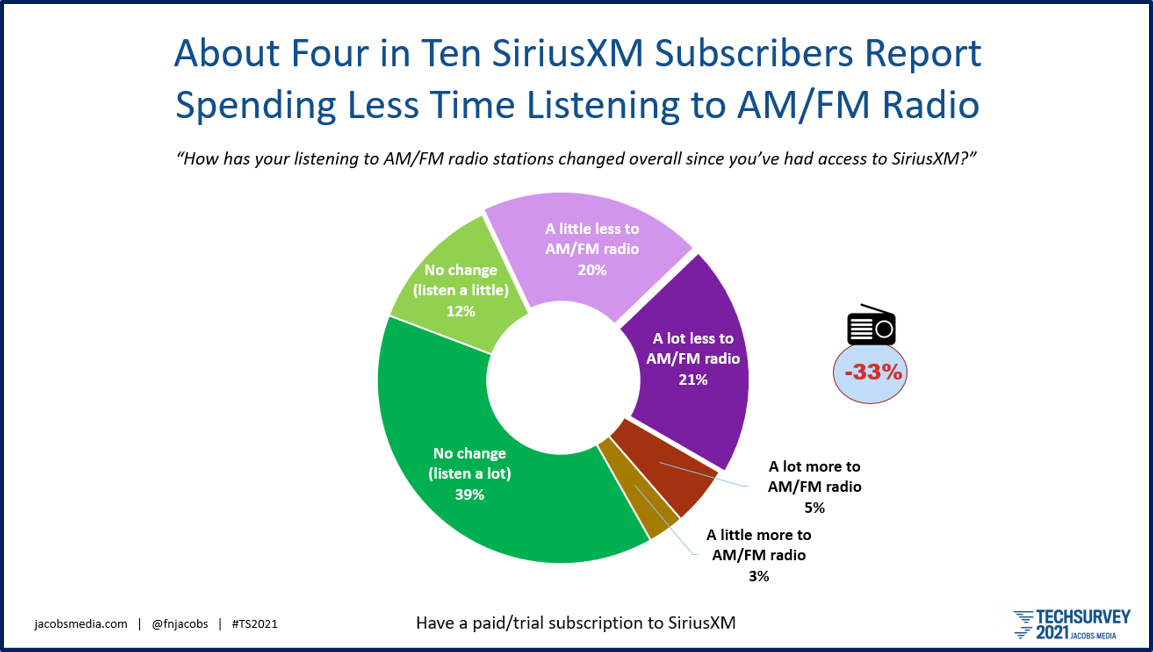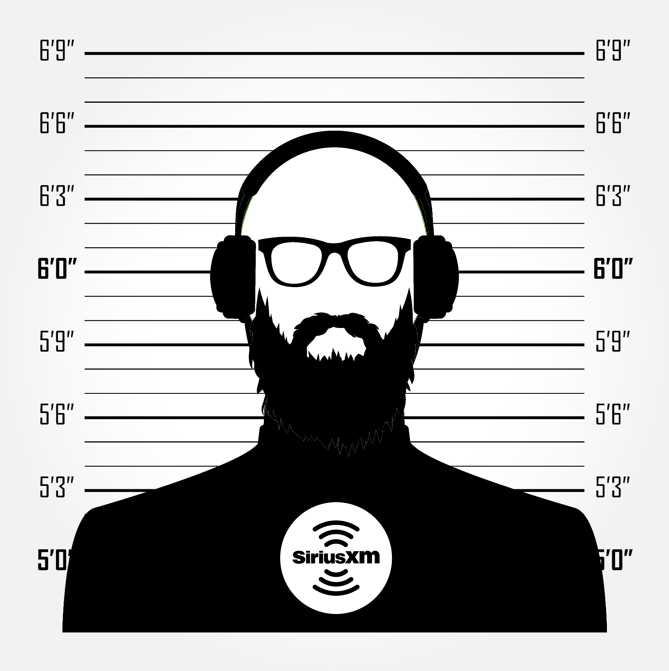
In business, in sports, and in life, there are bad days, colored by dumb, ill-thought decisions. They happen so often we have lot of different terms to describe them – some discreet but others that go cruelly to the point.
Screwups, unforced errors, snafus, debacles, dumpster fires, train wrecks, and unmitigated disasters all come to mind. The aforementioned embarrassments happen to all of us at one time or another, even when intentions are the best and our effort is unquestionable. It’s a shame when mistakes happen, but they do.
But then there’s another whole class of bonehead moves. Those happen when we take out a gun and shoot ourselves in the foot.
It’s painful when this happens, especially to someone or something you care about.
Like broadcast radio here in the States.
I’m at CES this week, immersed in a world of innovation and technological change. For the most part, radio is nowhere to be seen. It’s a world of AI, AR and VR, autonomous and electric vehicles, flying cars, robots, and other amazing inventions and devices that may become a part of our lives before too long. And radio broadcasters – already disrupted and fragmented – will have to deal with an array of new competition.
But as broadcasters often tell me, many of these advancements will take years to achieve meaningful scale. And those who are in the autumn of their careers quietly remind anyone who will listen that they’ll be on a golf course or a fishing pond by the time these techie chickens come home to roost – way off in a distant future. It will be someone else’s problem.
But there’s the here and now – not 2025 or 2030. Last week, to be exact. So, ask yourself why the radio broadcasting industry would knowingly aid and abet a fierce competitor that is a stone cold threat – right now today? 
Of course, I’m talking about SiriusXM – satellite radio.
In case you missed it, Inside Radio reported yesterday that during the week of December 27th through January 2nd, the #1 advertiser on U.S. radio airwaves was iHeartMedia, running boxcars of promos for their awards show and music festival. To be more precise, Media Monitors calculated they ran more than 70,000 promos across their 860 station portfolio.
But the headline of the story said it all:
“Sleeping With The Enemy: SiriusXM Now a Top 10 Advertiser”
That’s right – for the aforementioned week, satellite radio ran 33,794 spots for their “The Home of SiriusXM” campaign, vaulting them into the top 10 – for the first time ever. The ads position the satellite radio brand as a “live entertainment destination.” And they ran this message on broadcast radio stations all over the country to prove their point. After all, if you want to make a bombastic claim, make it on the medium where you’re going to have the greatest impact.
Now over the past few years, our Techsurveys – conducted among mostly radio fans – have proved that SiriusXM is broadcast radio’s biggest challenger. When a consumer decides to subscribe – or gets a free trial of SiriusXM when they buy or lease a new vehicle – the impact on AM/FM radio is almost always negative.
The chart below from Techsurvey 2021 fielded at this time last year is a statistical cautionary tale. It shows that among those subscribe or who are enjoying a free ride of SiriusXM, more than four of every ten say they’re spending a little or lot less time with broadcast radio. By the time we net out those who actually increase their AM/FM, we show a net loss of 33%. In other words, serious damage when even fervent radio listeners experience satellite radio:

Why does this happen? We surmise a few things.
First, many people have never had satellite radio. So when they get it free with a new vehicle, they pig out on the content. Let’s not forget the music channels are commercial-free, numerous, and more and more feature strong air talent. Second, satellite radio is the most similar to broadcast radio. You preset their stations in the car in the same way, and they are formatted much like broadcast stations. Maybe that’s also because they’re programmed mostly by radio ex-pats.
And SiriusXM has made it clear they’re gunning for terrestrial radio listeners. In a quarterly call to explain the company’s financial progress way back in 2016, then-CEO Jim Meyer (pictured) gave the investment community the straight shot about his company’s position versus broadcast radio:
(pictured) gave the investment community the straight shot about his company’s position versus broadcast radio:
“Terrestrial radio is still the 800-pound gorilla in the room.”
The year before SiriusXM EVP/CFO David Frear used similar language at a Bank of America get-together:
“So terrestrial to me looks like a very healthy business. [But] to you guys, it probably doesn’t look that way, because there is leverage that a couple of [the radio companies] have. They’re not great equity stories, with no real growth at the topline. But (radio) is overwhelmingly where people who leave our service go.”
Frear also noted that when consumers tune out satellite radio, they “aren’t going to the streaming players, they’re going back to listen to AM/FM radio…They’re the 800-pound gorilla.”
 There’s that metaphor again – a sure sign SiriusXM views its AM/FM competitors as the only thing between their brand and radio dominance.
There’s that metaphor again – a sure sign SiriusXM views its AM/FM competitors as the only thing between their brand and radio dominance.
So, why on earth would a broadcast radio sales team open its doors to AM/FM radio’s treasures?
It’s not the first time. I got into it nearly two decades ago with a well-known corporate chieftain who was happily taking fistfuls of dollars from either Sirius or XM for spot schedules (the two companies were separate entities back then). I was working for a number of stations in his company, and was hearing these spots on a frequent basis. And they just sounded wrong.
I got my chance during a call when he and I had other business to discuss. We talked through the agenda issues, and in the time remaining, I asked him the question: “Why are you running their ads on your air when you know they’re courting your audience?”
And he looked me in the eye and said, “Fred, you and I both know they won’t be around for long. I’d be a fool not to take their money.”
Here we are in 2022, and Sirius/XM hasn’t gone anywhere. And they’re a bigger threat to AM/FM radio than podcasts, Spotify, TikTok, YouTube, or Twitch. Now it’s true all these platforms and brands (and many others) are erosive in some way to broadcast radio listening. But none is as toxic as satellite radio.
Back in 2020, I wrote a blog post titled, “10 Reasons Why SiriusXM Is Broadcast Radio’s Public Enemy #1.” I went point by point to walk down the list of immutable reasons why satellite radio is radio’s biggest threat. Nothing has changed in the 18 months since. If anything, SiriusXM has gotten stronger, sounds better, and is being programmed more strategically. As broadcast radio sputters, satellite radio is improving its product and its service with each passing season.
radio’s biggest threat. Nothing has changed in the 18 months since. If anything, SiriusXM has gotten stronger, sounds better, and is being programmed more strategically. As broadcast radio sputters, satellite radio is improving its product and its service with each passing season.
And now, thanks to the need to rake in a little more cash at the end of a trying year, radio is making it even easier for its top competitor to have their way with its most precious possession – the audience.
To add insult to self-inflicted injury, SiriusXM made their buy on what is the slowest week of the year. You have to believe they got one helluva great rate on this campaign, guaranteeing impressive reach and frequency – all at broadcast radio’s expense.
I can picture jubilant salespeople high-fiving each other and banging the gong in celebration over this impressive buy.
And I can also picture the corporate honchos at SiriusXM laughing at how easy it was to fish in radio’s rich pondful of listeners.
That buy that vaulted satellite radio into the Top 10 shortsightedly may have helped cap a challenging Q4, while it got the new year off to a fast start.
But at what cost?
It is significant that satellite radio just celebrated its 20th anniversary.
How long will it take for radio broadcasters to figure out what’s really going on here?
How many times can you shoot yourself in the foot before you’re crippled?
Even when you’re an 800-pound gorilla.
- What To Do If Your Radio Station Goes Through A Midlife Crisis - April 25, 2025
- A 2020 Lesson?It Could All Be Gone In A Flash - April 24, 2025
- How AI Can Give Radio Personalities More…PERSONALITY - April 23, 2025




Bravo and Spot on! Bad move taking this buy!
Indeed. Programmers need to hear this stuff & push back, even if it’s coming from the network level.
I am literally sitting here reading this stunned.
I used to have our production department take out references to XM/Sirius in auto ads, it was such a sensitive topic to me.
Speechless.
That’s because you were about defending the sanctity of your radio stations. There IS bad money, and this is a great example. (HBD BTW)
Thanks my friend!
Hey Fred,
I think the jury is still out on what media platforms are actually competitors. Aren’t they all? Of the successful broadcasters in my universe, the smartest ones do double duty. When I’m around younger demos, they bemoan all commercials (which as a voice/over talent I cannot agree). There are lots of good reasons to get and keep Sirius, but as a mass transit commuter I’ve chosen books, work notes and social media content, even a nap as my choices. Frankly I’m even more concerned about the damage done by the My Pillow guy and the trust placed in formerly credible talent who found it impossible to turn off the cash faucet. Cred doesn’t come back once it’s gone. On both tv and radio I hit the button and send a note to the station – you lost me.
Cred s a very fluid thing, not to be squandered. Appreciate it, Tai.
“Frankly I’m even more concerned about the damage done by the My Pillow guy….”
Are you talking about the damage done by the tin foil hat wearer personally for backing a fraud who incited a mob of rubes to storm the Capital to overthrow the legally elected government of the United States one year ago today or the credibility lost by promoting his crappy product?
Is it the treason or the pillow? The damage to the country or to radio? I would agree on both counts but I’m not clear on which one you mean.
Really well said, Fred. SiriusXM has been keeping many of us awake at night for months and years, but today’s blog will create even more insomnia for me, and hopefully those who refuse to consider them competitors. They’re very good competitors who have some very smart people at the top of the content chain. They compete well on many levels. It’s impressive … and should be a concern to the decision makers of OTA Radio.
Great read, thank you Fred.
When you hear Mike McVay tell you he’s concerned about a competitor, believe it. Mike, thanks for the comment. Let’s hope this post ends up in the right in-boxes.
Fred, thanks for calling a spade a spade. Once upon a time, guerrilla marketing was the only way to pull something like this off.
True that, Andrew. Now you don’t even have to be clever about it. Just wave a little cash, and radio will cut you a great deal.
Fred,
The corporate honchos at radio have always done the wrong thing with regard to satellite radio. I remember 20 years ago being required to run FREE “anti-satellite radio promos” when Sirius and XM first came on the scene. That would be like a heritage radio station acknowledging a new, low cume competitor. Something no smart programmer would ever do!
Exactly, Mike. Thanks for chiming in.
Well done Fred. They are only charging $6 per month these days. Many more people can afford it. We we, certainly, should not help them grow their footprint.
Exactly, Chuck. We’re just accelerating their growth.
Valid and indisputable, Fred.
Thank you for the reminder on this “Tortoise and Hare” scenario. The addition of the self-destructive gorilla would leave even Aesop shaking his head in bewilderment.
It is hard to fathom, Rob. Thanks for weighing in.
Thank you for addressing this Fred. I shake my head every time I hear these ads.
Me, too. Thanks, Brian.
Excellent article, thank you.
I suspect many older-school radio execs are not able to comprehend how our audience sees “steam radio” alongside “satellite radio”. If they did, they’d much better understand the danger satellite radio poses.
Before I returned to the radio industry, I switched to satellite in my own car. The ever-present nature of Sirius/XM with (almost) no bad coverage zones, no advertising, and engaging personalities/presenters, plus my ability to choose exactly the channels of content I wanted, as and when I wanted them, gave me the best of broadcast radio and none of the worst.
It is very hard to match that with a regular AM/FM station. One point in particular that I urge colleagues to keep in mind is that every ad you play has a cost to your station. I was talking with a station owner yesterday, with the “bright idea” being that because he has unsold inventory, he’ll give it away to his advertisers, because otherwise it is dead air/wasted.
Not so at all. Each of those ads weakens a station’s appeal compared to Sirius/XM. If you’ve an impossible-to-fill schedule, better to have more content than advertising.
Bingo. But you knew I would say that. When I look back at all the crying in our beers we used to do when new format models came down and it was all just “selling out” to the man, or for the money, or whatever…it all seems so hollow and lame compared to giving up our very turf to the competition without a thought to the long term effects. Lay down and take the money might work in some endeavors but it is not a good model for us. I mean that in the nicest possible way if there is one. Thank you, Fred.
And to think when I was a salesman at WIFI92fm Philadelphia in the late 70’s we were not allowed to take television station advertising during a rating period (only four week periods then). We were trained that it would be stupid for us to send our listeners to a TV show. Yes, TV was considered competition for the listeners’ time and attention.
S.O.S…an old battle that programming needs to win…. as someone (apologies) said…”Just Say No”….
These days, programmers just have that leeway. You and I stood on desks, if necessary. We didn’t win ’em all, but we were allowed to make our case. The equation became unbalanced a couple decades ago, and it is still askew. Thanks, Tom.
Well said- sad, but well said
Indeed, Tom.
“While money doesn’t talk, it swears” – Bob Dylan
Of course we took the money and it goes back to the inherent inferiority complex we have in this industry and the take whatever we get mentality that only gained momentum after the Telecommunications Act of 1996, culminating in the “Less is More” fiasco in 2005 that historians will confirm was the biggest self inflicted wound when they write the history of this industry.
We have always viewed ourselves as second class citizens, from the RAB preaching how “radio can support your print ad” in the 80/90’s to Entercom removing any mention of Radio to appease Wall Street today.
I’m not shocked at this at all. Dismayed yes, but unfortunately not shocked.
The only thing I have an issue with is this – “and more and more feature strong air talent.”
There are quite a few former Radio “personalities” on Sirius that are as dated as leisure suits. I mean “tasty tuneage” is still being used. I challenge you to make it through their long and meandering breaks.
Was that cool at one point? I guess, but so were Bell Bottoms.
We need to combat them with talent but we need talent that understands how people communicate in this century. Of course as you’ve pointed out we are not doing a good job there.
I’m not suggesting they’re all good. I won’t name names but I hear some of the same shopworn voices. But I also hear great effort being made to connect and enrich – not just “That was, this is.” But they’re trying to make their talent more engaging, perhaps to combat terrestrial radio and Spotify.
Back in the day we wouldn’t even run a spot if a known competitive Jock voiced it. This is insanity.
I remember those days well. Of course, there was product separation back then, too. Now you can hear three car spots in a row. Appreciate it, Jeff.
What does it say about radio’s ability to monetize content that stations/groups are so desperate for cash, they’ll accept commercials from these active competitors? A well-fed person can turn down gas station sushi, a starving person may not have that choice.
I appreciate the visuals here, Keith, and I supposed you’re right. Just how far will radio go to hit that Q4 number. Apparently, pretty far.
Well if anyone shot themselves in the foot…
It may have just been SiriusXM.
The creative for the “Home of SiriusXM” campaign is not very effectual.
Their message (as weak as it is)—
Seems to get lost in all the chaos and celebrity.
Marty, I used to think that way about Crazy Eddie and Kars-4-Kids, but you put enough tonnage behind even crap creative, and it will move the needle.
Hello “My Pillow” guy.
Think what you want about his product, his politics, his sanity, this guy makes millions.
Fred and Andy, both your comments reminded me of the old Joseph Stalin quote: “Quantity has a quality all its own.” How else do you explain a “Kars-4-Kids”?
You say it enough, people might start believing it.
Repetition, repetition….repetition.
Just yesterday, I wrote that it’s rare I hear an idea I truly believe is “win-win,” with most being either “win-lose” or “I-win-big-and-you-get-a-bone-for-letting-me-use-you.” Would SiriusXM sell spots to AM/FM broadcasters? If not, enjoy your bone, Radio.
I remember when we launched our FM with huge TV GRPs and a client asked me why he should buy our station since we were obviously all over TV.
I said “I’d prefer to run ads on the other stations in this market, but they won’t take my orders”.
And then I see this …
I had that some reaction. If we could just somehow buy ads on our biggest competitor. Apparently, you can.
Fred,
Easily the most important blog you’ve written. The volume of comments suggests the significance of the topic. Still, it amazes me that this threat wasn’t seen years ago.
Wasn’t the threat obvious as broadcasters ran away from the word RADIO? Meanwhile, what is the full name of SiriusXM? Oh, right, SiriusXM RADIO.
RADIO has allowed satellite to rename it “terrestrial radio.” That’s when the left foot was blown clean off.
So, I guess the same people figure they might as well blow off the right foot as satellite radio does all the things “we” used to do create great products.
Remember bigger than life promotions? How about hiring great on air talent, instead of voice tracking or the cheapest person available? Research? Yup, the satellite broadcasters still have it. State of the art facilities and superior engineering, etc. Topped off with extensive multi-media marketing campaigns using all effective mediums (we’ll know that radio is truly dead when satellite is no longer waving dollars under its collective noses to buy ads) and SiriusXM Radio is doing all the things the best radio companies did (once upon a time) to build and protect exceptional and famous stations.
I guess the leaders running the remaining companies are going to prove they can: give up that old fashioned R-Word, skip doing the things that built the brands that made many rich while accepting satellite radio’s money, and survive – or not.
While you’re at CES, let me know if you see any cool new SiriusXM receivers. Looks like those lifetime subscriptions I bought when they started up will turn out to be among my better investments.
You made a good call on the lifetime subscription deal.
Thanks for the positive feedback. I would add this to your pile: radio’s strict adherence to 25-54 with no room to go even 5 years younger or older caused programmers to throw in the towel on many formats – oldies, jazz, a very young pop hits, etc. Satellite radio has committed to these former formats. And as I responded to a comment on Twitter yesterday to a guy who admittedly hasn’t listened to sat rad “in years,” he should spend some time with the music formats.
At some point, SiriusXM recognized “terrestrial” radio’s lack of content investment, and opted lean into what most radio stations used to do. Thanks for pointing out some tough truths, Andy.
First let me start that after discussions with Bob Neil @ Cox in 2001, it was decided to reject any Satellite Radio ads, a move widely criticized in the Industry at the time.
Though making a boatload of money, SiriusXM has shown itself to be a failure as a challenger to radio.
Case in point. Prior to 2020, 19 million new light passenger vehicles per year were purchased annually in the USA. SiriusXM claims to be in 80% of them (slightly over 15 million). New vehicles are activated for 1 year free.
Furthermore, roughly 40 million used light passenger vehicles are sold with a low estimate of Sirius/XM in at least half of them (or a low estimate of 20 million). Used vehicles are activated for 90 days free.
That’s a combined exposure of roughly 35 million new potential customers per year.
So you have radio with 12-15+ minutes of spots and SiriusXM with no spots which literally anyone can sub to for $5 a month.
Sounds like a no-brainer, correct? SiriusXM must be converting at least 10% of those 35 millions for $5 a month to avoid 15 minutes of spots, right?
Have you checked the numbers?
Not even close.
Most years they may convert 1%.
It’s ridiculously low. If Radio converted this low for Ads, Radio would be out of business. That people will not pay $5 to avoid 15 minutes of spots an hour, you know the product is really bad. And they are if you’ve listened. I have to punch through 20+ channels attempting to find an actual hit regardless of era. But that’s a different discussion.
Radio has not kept up with the USA GDP since 2000. And it’s only getting worse. The canary in the coal mine that no one wants to talk about (the declining AQH of Radio overall) continues as it has for over 30 years now.
The only reason anyone would think SiriusXM is a competitor is that radio AQH is such a shell of itself that a CB is literally a competitor as it takes one away from the nano-size audience of radio now.
To that extent, why not scream about advertising TV programs (who aren’t in that much better shape, but certainly better than radio)? Why not scream about advertising Verizon, ATT, TMobile, Spectrum, Comcast et al as any data device takes away from radio?
The horses have left the barn.
And your article was 20 years too late.
I say if you can’t beat em, copy em.
Almost all other mediums have some sort of subscription service: TV streamers like ESPN+; CBS Paramountplus; Disneyplus; Spotify; etc…you name it.
I say Radio should create and offer a subscription service, in addition to their present commercial local live service. And advertise it discreetly on their commercial local live service.
How?
Briefly, I’ll give a possible example:
1. Have someone like United Stations RN create a Seriusxm type
audio product. Copy their most popular one. United Stations
allready may have a live commercial service they could adapt.
2. Offer it to FM stations to put on one of their HD channels. Most FM-
HD stations have one or two open HD channels, 3 & 4.
3. Develop a subscription model whereby each HD station carrying
the national service gets paid something for each subscription to
their local HD channel station.
4. All cars are now able to receive their local HD channels so the
subscribers could somehow access the channel after they paid
their $10 subscription fee.
Technology has advanced to where someone could figure out how to make this work technically, with the service and the stations making money through subscription fees.
“Terrestrial” Radio would thus then have something to compete with Serious XM that is subscription supported, not advertising supported.
Do you get the idea?